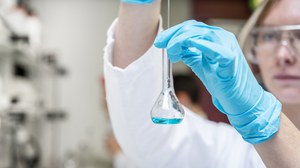Good Scientific Practice at TU Dresden
Scientific work is based on fundamental principles that apply equally to all scientific disciplines. The foremost principle is truthfulness with respect to oneself and others. This ethical norm forms the foundation for the rules of scientific professionalism in all disciplines.
 © PantherMedia / hirun laowisit
© PantherMedia / hirun laowisit
Foundations of scientific work at TUD
All members of TU Dresden are obliged to comply with the Statutes for Ensuring Good Scientific Practice, for Avoiding Scientific Misconduct and for Dealing with Violations, to make it the basis of their scientific work and to actively contribute to the prevention of scientific misconduct in their field of activity.
Scientific misconduct is not tolerated at TU Dresden. Any justified suspicion of scientific misconduct within TU Dresden will be investigated and given the utmost attention, with due regard ensured for the rights of those involved. If the suspicion is confirmed, appropriate measures will be taken in the individual case.
If you have questions about good scientific practice or suspect misconduct and need advice, the ombudsperson and the Office for Good Scientific Practice are available to assist you. The Liaison Officers for Early-Career Researchers are available as the first points of contact for early-career researchers at the faculty level.

